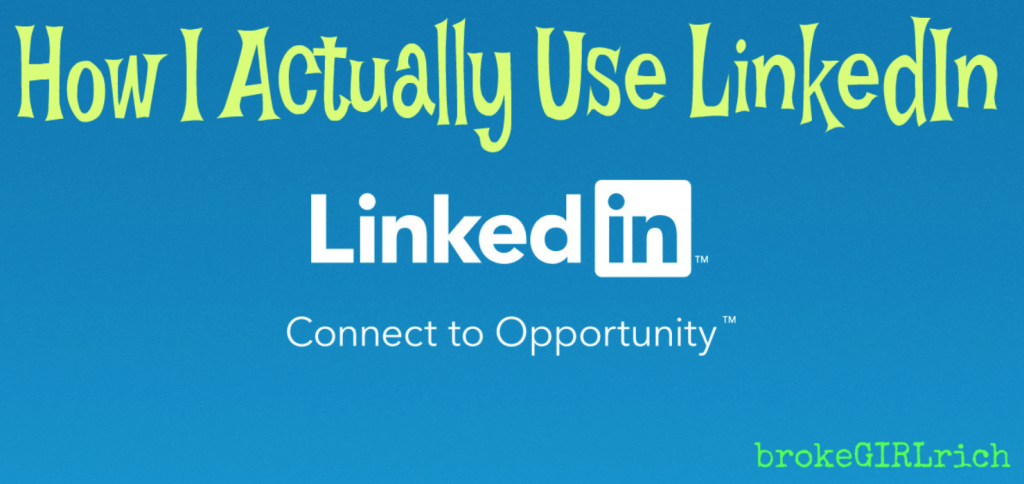I was recently having a conversation with a friend of mine who is looking for a job and we were talking about what the point of LinkedIn really is.
I had one. He didn’t.
I’ve put a fair amount of time into setting up my resume on LinkedIn and some effort into providing recommendations for others in the hopes that they’d provide one for me.
I think my LinkedIn profile is pretty good.
I’ll be the first to admit though, I don’t think it’s actually all that useful.
LinkedIn regularly offers me jobs that have nothing to do with theater. Or they are technically in a theater but not a stage management job.
LinkedIn often thinks I want Production Manager jobs as in – work for this factory overseeing production. LinkedIn doesn’t really understand theatre jobs at all.
But I still told my friend he should probably make one. Why?
Because here’s the number one way that I use LinkedIn.
Career Stalking.
Let’s use my unending obsession with working for Cirque du Soleil someday for example.
When I finally managed an interview over there, I pulled up the name of the lady who would be interviewing me on LinkedIn.
Now, a different friend of mine thinks you should log out and be sneaky when you’re doing background research on people, but in this case, I think the exact opposite. I want her to know I’m researching her and Cirque right before she interviews me and I have no problem with my head showing up as “Mel and 4 others viewed your profile.” As a matter of fact, she might click over and take another look at my resume before interviewing me because of that and my LinkedIn resume has pictures, videos and a more detailed description of my job duties too.
The number two way I use LinkedIn?
Connections.
And actually, this is the one that often has more success.
I was interviewing for a job this spring and pulled up the guy interviewing me. It turned out we had a few connections in common.
I reached out to the connections to make sure I’d like working with him. It turned out one of my connections was actually a pretty good friend of his – the type to jokingly send him a text message about how his potential stage manager is checking up on him and FYI, she’s great and you should hire her.
Totally got the job. Would not have had a clue that this former light tech I worked with knew the producer at this theater if not for LinkedIn.
This works in a couple of ways – sometimes the connection you reach out to does what that one did and reaches out on your behalf even though you didn’t ask them to. Sometimes you get a crazy rant about how awful the company is and that you should run for the hills (thank you!!). Once in a blue moon, I’ve gotten a “oh, you’re looking for a job? I also know company X, Y and Z are hiring and I can put in a good word with them.”
All of those outcomes make LinkedIn feel totally worth it.
Additionally, reaching out with a:
Hey Bob,
Long time, no see! How’s it going? I saw you used to work with Jim Smith and I just applied to work for their company? Did you like it there? Hope everything’s been going well!
Is still a way of networking. You just want a little info, no big deal, and it reestablishes a connection that’s likely been lying dormant for a long time. I know I never mind when someone does something similar and I’m happy to chat and catch up for a few minutes about how their life is going in general.





I so need to step up my LinkedIn game. I have kept in touch with a few colleagues here and there that I wouldn’t have otherwise, but I know I can really do a lot more if I put some time and effort into it.
Money Beagle recently posted…Why Are So Many Consumers Hypocrites About Fuel Economy?
Yeah – I mean, the connections are definitely the most useful part. And you can always write recommendations for old colleagues that you liked working with but haven’t spoken to in ages. It just takes a minutes and while they might not reciprocate, it opens a door to a potential conversation.
Great insights, Mel! I love the idea of “career stalking” and using connections to get ahead. It’s practical advice that goes beyond the usual LinkedIn tips. Thanks for sharing your personal experiences—super helpful and relatable!